Welcome to the Start Learning page! Explore a diverse collection of articles. You can also find links to helpful resources and organizations that can further support your growth.
Are you in a healthy relationship?
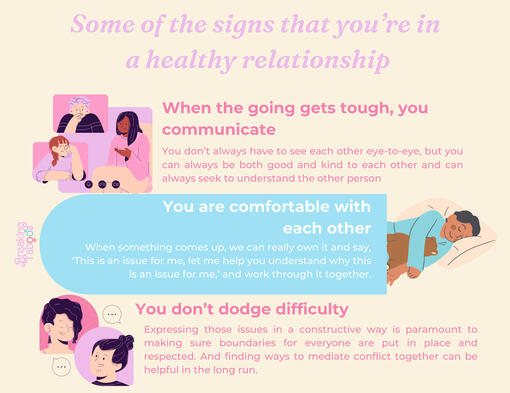
A “healthy relationship” is subjective, as its success depends on the needs of the individuals involved. According to therapist Lindsey Antin, healthy relationships are marked by adaptability, accommodating the changes and phases of life.Communication is a cornerstone of healthy relationships, where partners discuss various aspects of their lives openly and without judgment.Healthy relationships maintain a balance between interdependence and individuality. While partners rely on each other for support, they also maintain their unique identities and pursue personal interests outside the relationship. Their self-esteem isn’t solely reliant on their partner’s approval or love.Curiosity is key in sustaining long-term love. Partners remain interested in each other’s thoughts, goals, and daily lives, supporting each other’s growth without dwelling on past versions or imposing expectations. They embrace each other’s evolving selves.You can read more about it here
Whether it’s everyday stressors or more serious issues like mental health or finances, they listen to each other’s perspectives and share their own without hesitation. Even in non-monogamous relationships, emotional check-ins and frequent communication about other partners are valued.Trust is another vital aspect, built on honesty, integrity, and the absence of secrets or worries about infidelity. It extends to feeling safe and respected, knowing your partner has your best interests at heart and encourages your autonomy.

Speaking of relationships,In homosexual relationships, the assumption that one partner will be dominant and the other submissive can be effective depending on the couple's maturity. While such dynamics aren't inherently unhealthy, the partner in the feminine role often struggles to gain respect from outsiders, reflecting a subtle form of discrimination, though there's no evidence it leads to violence against LGBT individuals.Queer couples often face ignorance from the straight community, including invasive questions and unwanted criticism. A common and irritating question is, "Who is the man and who is the woman?" as if queer relationships should conform to traditional gender roles.Queer relationships are often seen as deviations from gender norms, reinforcing the gender binary and the idea of straight supremacy. Female couples, in particular, face ignorance from a society that can't fathom a fulfilling relationship without a male presence.The heteronormative appropriation of queer culture needs to stop; queer identities and relationships aren't modeled after straight ones. Imposing rigid gender roles on queer relationships undermines their authenticity and isn't necessary for a genuine connection.You can read more about it here
Pregnancy
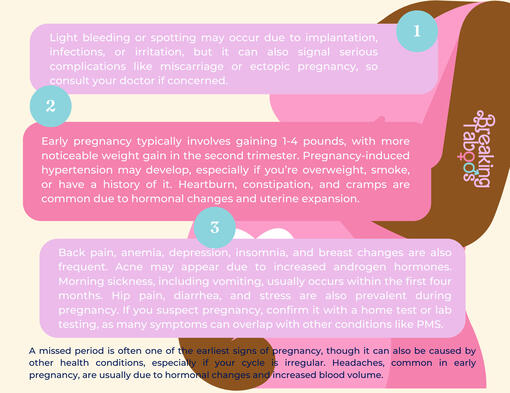
Home pregnancy tests are highly accurate after the first day of a missed period. If you get a positive result, schedule a doctor’s appointment for an ultrasound to confirm and date the pregnancy.Pregnancy is diagnosed by measuring human chorionic gonadotropin (hCG) levels, which increase rapidly after a missed period and can be detected through urine or blood tests. Urine tests can be done at home or at a doctor’s office, while blood tests, which can detect pregnancy as soon as six days after ovulation, are performed in a lab. Early confirmation of pregnancy allows for better prenatal care.You can read more about it here
How early in pregnancy can you get an abortion?
Different health care providers have varying criteria for when to provide abortions. Some may offer the procedure as soon as a woman tests positive for pregnancy, while others may prefer to wait until the fifth or sixth week of pregnancy (the first or second week after a missed period). Planned Parenthood can assist in determining the optimal timing for the procedure. It’s advisable to have an abortion done as early as possible since those performed in early pregnancy are easier, safer, and less costly than later abortions. Nearly 9 out of 10 abortions occur within the first 12 weeks of pregnancy. (Planned Parenthood, 2016).Are the Abortion Pills (Mifepristone and Misoprostol) Available in the Philippines?
Abortion pills are not sold legally in the Philippines. Misoprostol is registered in the Philippines for the treatment of a range of medical conditions.How Late Into a Pregnancy Can the Abortion Pills Be Used?
You may be able to get a medication abortion up to 13 weeks after the first day of your last period. If it has been 78 days or more since the first day of your last period, you can have an in-clinic abortion to end your pregnancy.Do I Need a Prescription for Mifepristone? Misoprostol?
A prescription is needed for Misoprostol.What Brands of Abortion Pill Are Popular in the Philippines?
Popular abortion pills brands in the Philippines are Cytotec and Mifepristone.How much do these pills cost?
Cytotec:
0 weeks – 2 months: Php 3400
3 months and above – Price varies on how many monthsMifepristone:
0 weeks – 2 months: Php 5200
3 months and above – Price varies on how many monthsYou can contact Likhaan Org for more information on abortion in the Philippines.
Practice Safe Sex!
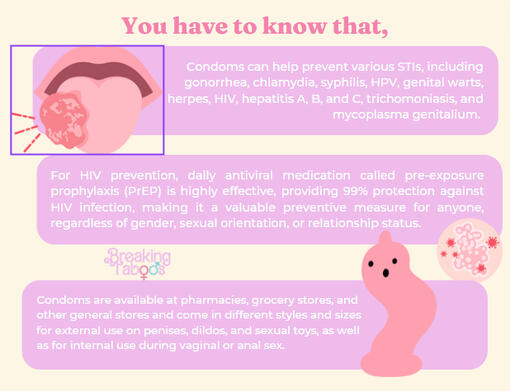
Safe sex, also known as safer sex, aims to minimize the risk of harm, infection, and unintended pregnancies. It applies to everyone, regardless of sexual activity, STI status, gender identity, or sexual orientation. Understanding and practicing safe sex is crucial for all individuals, and it involves providing protection for both yourself and your sexual partners.Primary care physician and transgender medicine specialist Antonia “Nia” Nwankwo, MD, explains safe sex practices, tips for making sexual experiences safer, and advice on disclosing your STI status.
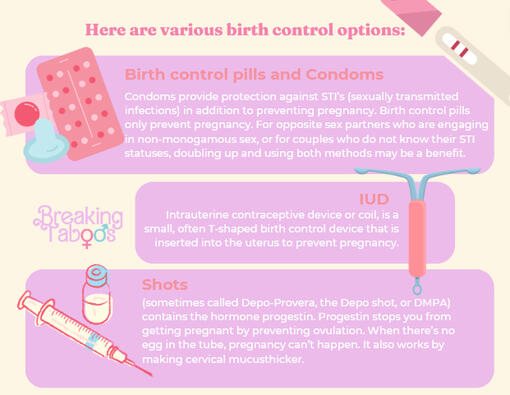
Are some kinds of sex safer than others?
Dr. Nwankwo emphasizes that while no sex is completely safe, there are practices that can reduce the risk of STIs. STIs can be transmitted through oral, vaginal, and anal sex, as well as through skin-to-skin contact when body fluids are present. Some STIs, like herpes and syphilis, can even be transmitted through kissing due to fluid exchange. However, activities like kissing are considered lower risk compared to penetrative sex.Safer sex practices include mutual masturbation, cuddling, and massages, which offer intimacy with lower risk of STI transmission.Dr. Nwankwo emphasizes that historically, safe sex primarily focused on preventing pregnancy, which remains an essential aspect of sexual health. Various birth control options are available for preventing unintended pregnancies, including birth control pills, IUDs, hormonal implants, patches, shots, diaphragms, contraceptive gels, spermicides, the morning-after pill, and condoms.Even though the risk of infection is never zero, there are ways to make sexual practices safer. Clinicians now often use the term “safer sex” to emphasize this idea. For example, using barrier protection like condoms during oral sex can reduce the risk. Additionally, discussing the use of dental dams for two people with vaginas can further minimize risk.You can read more about it here
Sexual Assault: What Is It and How Does One Recover?
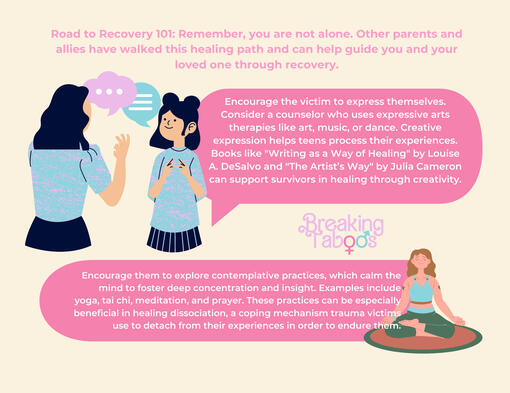
Women, who often know their assailants, experience higher rates of PTSD and emotional distancing. Men, though less likely to experience assault, can still be affected, with most perpetrators being male.
Sexual assault, involving unwanted and non-consensual sexual contact or behavior, can affect anyone, regardless of gender or age. Symptoms vary but often include initial shock, fear, and self-blame, with long-term effects such as rumination, emotional numbness, and intimacy issues.Symptoms of sexual assault include anger, shock, fear, and difficulty sleeping. Cognitive and behavioral symptoms may persist, with a significant risk of developing PTSD. Intimacy issues are common post-assault, with survivors experiencing changes in sexual desire and behavior.Addressing sexual trauma involves finding safety and support, whether through therapy, support groups, or peer networks. Encouraging survivors to seek professional help and offering patience and understanding can be crucial in their recovery journey.You can read more about it hereSupport for survivors includes peer groups, crisis hotlines, and trauma therapy. Research shows that females aged 12 to 34 are most at risk, with men typically being the perpetrators. In children, assaults usually occur by known individuals, while in the military, rates are significant, especially among junior enlisted personnel.How can you initiate treatment for symptoms of sexual trauma?The approach to treatment after experiencing sexual trauma varies from person to person. Some may begin with a hospital exam, while others may turn to peer support groups. For some, psychotherapy with a trauma-trained mental health professional may be most effective. Whether reaching out to a crisis hotline, confiding in a trusted friend, or seeking therapy, treatment should proceed at your own pace, focusing on taking small steps toward healing.
